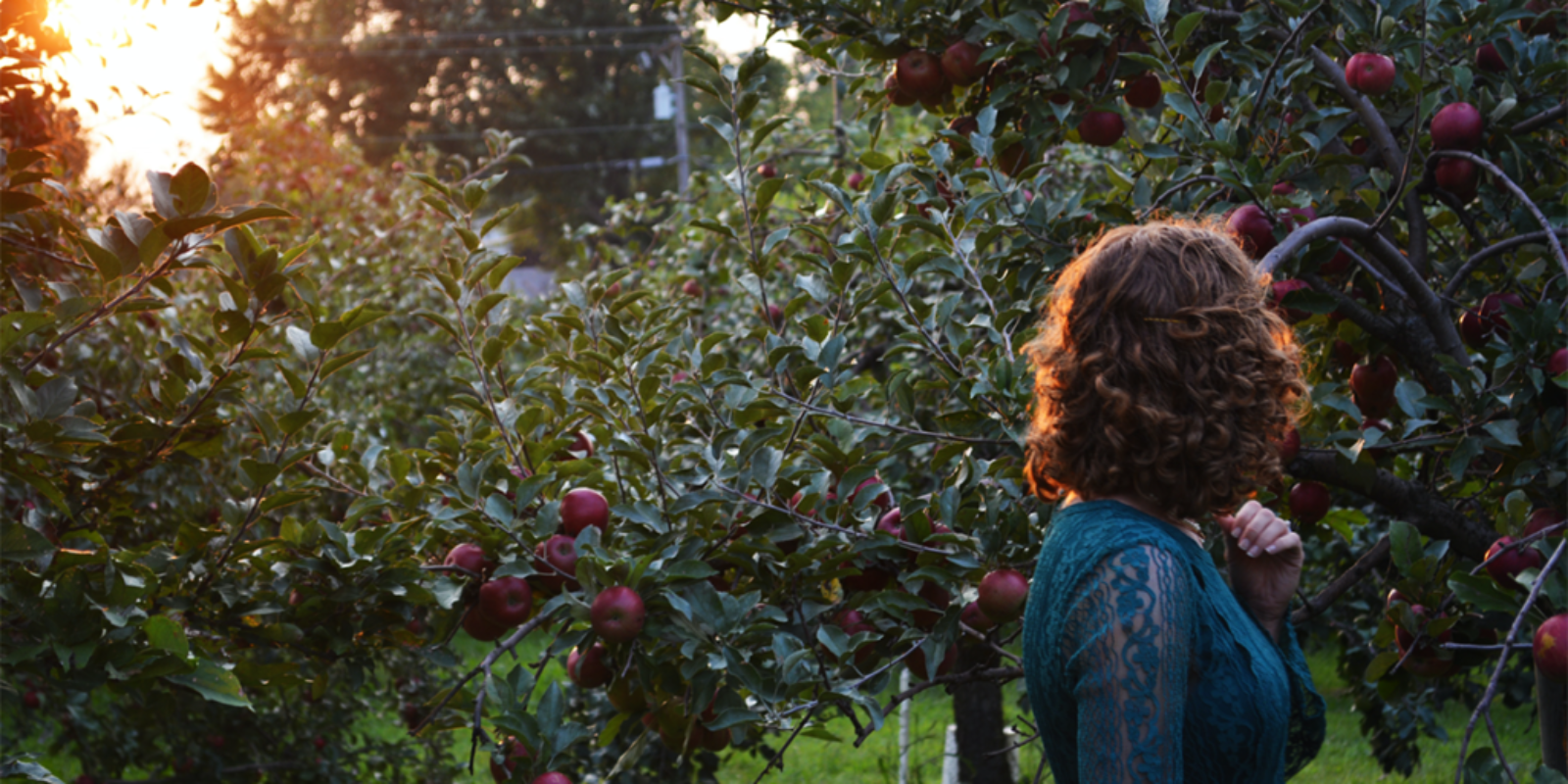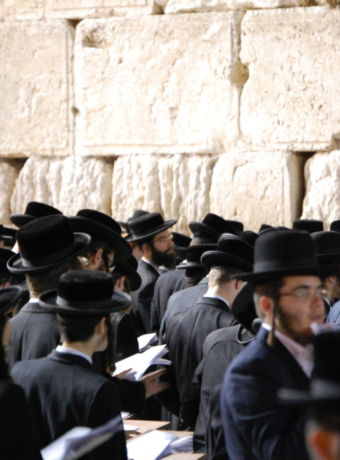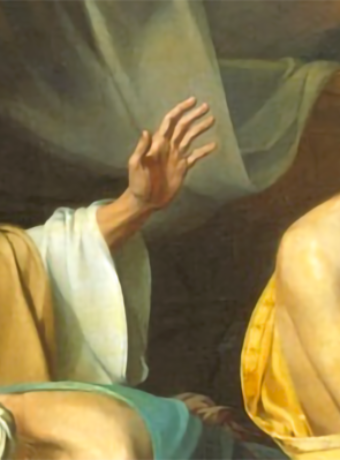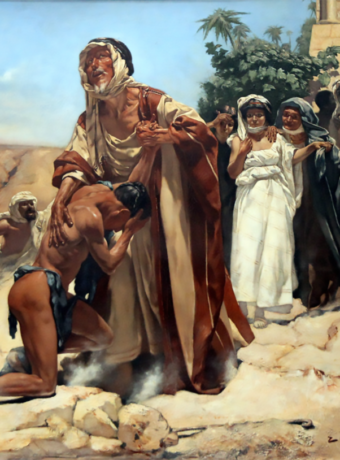Why Did God Plant the Tree of Knowledge in His Garden and then Forbid Man to Eat from it?
This is the fifth part of a series of articles on the Messiah’s names Jesus and Immanuel. Why was Christ given these two distinct names and what do they really mean to us? You can read the first, second, third, and fourth articles if you haven’t as background to this story.
After creating Adam in His image and likeness, God gave him a purpose for his earthly existence.
27 So God created man in His own image; in the image of God He created him; male and female He created them. 28 God blessed them and said to them, “Be fruitful and multiply, and replenish the earth and subdue it. Rule over the fish of the sea and over the birds of the air and over every living thing that moves on the earth.” (Genesis 1:27–28, MEV)
First, God gave Adam His own image and likeness so he (mankind) could represent God on this earth. He blessed them first then the great commission was given.
Be fruitful and multiply, and replenish the earth, and
Subdue it and have dominion… over every living thing that moves upon the earth.
Rest before work
Adam was created on the sixth day, so his first day of existence was not a workday but the seventh day of rest. He was to rest with God first then he would have the strength to begin his labor. Then “the LORD God took the man, and put him into the garden of Eden to till it and to keep it.” (Genesis 2:15, KJV)
All throughout the Scriptures, you will notice that when God asks a person to do something, He would also provide the grace to fulfill it. God doesn’t ask His people to do something without giving them sufficient capability to carry it out.
Grace comes with the test of faith
However, the grace that God provides comes also with testing to see if this man that He created would obey Him. God allowed him the free will to choose. Obedience to what God says proves that one believes in God. Obedience is the fruit of faith. The apostles are witnesses to that as we read their accounts in Matthew 28:19–20, Luke 24:48–49, and Acts 1:8):
18 Then Jesus came and spoke to them, saying, “All authority has been given to Me in heaven and on earth. 19 Go therefore and make disciples of all nations, baptizing them in the name of the Father and of the Son and of the Holy Spirit, 20 teaching them to observe all things I have commanded you. And remember, I am with you always, even to the end of the age.” Amen. (Matthew 28:18–20, MEV)
There is the command. Here is the grace, the power from on high.
48 You are witnesses of these things. 49 And look, I am sending the promise of My Father upon you. But wait in the city of Jerusalem until you are clothed with power from on high.” (Luke 24:48–49, MEV)
8 But you shall receive power when the Holy Spirit comes upon you. And you shall be My witnesses in Jerusalem, and in all Judea and Samaria, and to the ends of the earth.” (Acts 1:8, MEV)
With that grace also came the test, “But wait in the city of Jerusalem until you are clothed with power from on high.”
The disciples were not to move out of Jerusalem until they were filled with the power of the Holy Spirit. In full obedience, they stayed, and they all continued with one accord in prayer and supplication until they received what was promised, the coming of the Holy Spirit (Acts, chapter 2). Peter, standing with the eleven apostles, preached with so much power that afterward three thousand souls believed and were baptized.
Even Jesus Christ, the last Adam was put to the test after His baptism, before He could begin His ministry. Read it here.
The first man, Adam being put to the test
God leaves Adam a will to choose, whether to obey or disobey His word. With that, He gave him also the power to rule over all His creatures on this earth. But that power is anchored to his obedience to God’s command. Adam cannot rule over all the earth if he would not submit to God’s rule first. Jesus showed us this measure of faith in the story of the centurion in Matthew’s gospel (Matthew 8:5–13, MEV).
And when Jesus entered Capernaum, a centurion came to Him, entreating Him, and saying, “Lord, my servant is lying at home, sick with paralysis, terribly tormented.”
Jesus said to him, “I will come and heal him.”
The centurion answered and said, “Lord, I am not worthy that You should come under my roof. But speak the word only, and my servant will be healed. For I am a man under authority, having soldiers under me. And I say to this man, ‘Go,’ and he goes, and to another, ‘Come,’ and he comes, and to my servant, ‘Do this,’ and he does it.”
When Jesus heard it, He was amazed and said to those who followed, “Truly I say to you, I have not found such great faith, no, not in Israel. And I say to you that many will come from the east and west and will dine with Abraham, Isaac, and Jacob in the kingdom of heaven. But the sons of the kingdom will be thrown out into outer darkness. There will be weeping and gnashing of teeth.”
Then Jesus said to the centurion, “Go your way. And as you have believed, so let it be done for you.” And his servant was healed that very moment.
So, why did God plant the Tree of Knowledge in His garden and then forbid Adam to eat from it?
You would know the answer by now: in order to test him. This principle is woven into the lives of men whom God chose. Noah, Abraham, Moses, Joshua, David, Solomon, the prophets, and many more were anointed and tried. Some fearfully obeyed and were blessed. Others disobeyed and miserably failed.
By His words, God blesses them and by His words, they are tried. Often, the grace that He gives His people becomes the means He uses to test them. God demands absolute obedience to His commands.
Here enters the serpent (or the Devil) whom God uses for this purpose. The fruit of the tree of knowledge according to the serpent would make one wise like God. However, this fruit if eaten alone poisons the soul for it corrupts the man with pride leading to his destruction. This tree that the serpent offered to man comes without the fear of God.
By forbidding Adam to eat from the tree of knowledge of good and evil, God did not want him to have discernment independently from God. God knows that if left on his own, man would destroy not only himself but even God’s other creation over which he was given authority to rule. God pre-empted Israel against this danger in Deuteronomy 17:18–20.
18 It must be, when he sits on the throne of his kingdom, that he shall write a copy of this law for himself on a scroll before the priests, the Levites. 19 It must be with him, and he must read it all the days of his life so that he may learn to fear the Lord his God, and carefully observe all the words of this law and these statutes, and do them, 20 that his heart will not be lifted up above his brothers and so that he may not turn aside from the commandment, to the right or to the left, to the end, so that he may prolong his days in his kingdom, he and his children, in the midst of Israel. (Deuteronomy 17:18–20, MEV)
The serpent came with a motive that opposes God, “You surely will not die!” which was a lie for God says the contrary. This enticed Adam to disobey God’s command which is a rebellion that leads to spiritual death.
Now, true wisdom comes not from this tree but from the other, the tree of life. As I explained in the previous article, this tree of life is Christ Himself. In Christ are all the treasures of wisdom and knowledge (Colossians 2:3).
As the body (the physical) is sustained by the trees in the garden that is good for food, and the spirit of man (the spiritual) is fed by the tree of life, the soul life of man (the psychological, psuche) can only be cultivated through the spirit of man by the life from God, the tree of life, Christ. In Christ was life, and the life was the light (wisdom) of men (John 1:4).
It is the Spirit who gives life. The flesh profits nothing. The words that I speak to you are spirit and are life. (John 6:63, MEV)
Evident from the Scriptures, man’s main sustenance for his whole being (spirit, soul, and body) must come from the Tree of Life, Christ Himself, who is the Word of God (John 1:1).
…“It is written, ‘Man shall not live by bread (physical food) alone, but by every word that proceeds out of the mouth of God.” (Matthew 4:4, Deuteronomy 8:3)
God planted in His garden fruit-bearing trees. However, in that garden, not all fruit trees are food. God established what is food and what is not food for man. The fruit of the tree of knowledge is not.
16 And the Lord God commanded the man, saying, “Of every tree of the garden you may freely eat, 17 but of the tree of the knowledge of good and evil you shall not eat, for in the day that you eat from it you will surely die.” (Genesis 2:16–17, MEV)
With the provision comes a specific command, and with that command comes the test of obedience, “you shall not eat.”
This distinction between what is food for His people and what is not food is established by God Himself in His law. The creatures that God identified as food are sanctified by His word. Please read Leviticus chapter 11 and 1 Timothy 4:4–5.
Grievously, many bible expositors and false teachers since the 17th century have corrupted this truth in their deceit leading God’s people astray.
Obedience to God’s word is true righteousness leading to eternal life. Disobedience to His commands is a sin that leads to eternal death.
The natural man Adam of the “old creation” gave in to the sin of disobedience when tempted and entered the realm of Satan (the serpent). The spiritual man Jesus overcame the temptation by His obedience to God’s word and was resurrected and exalted in glory.
Even so, anyone, once he believes in the name of Jesus Christ (Yahoshua) he is redeemed and forgiven of his sins. Then he must identify himself with the Christ crucified by being baptized. This is the realm of Jesus.
By believing that God raised Jesus Christ from the dead, a believer identifies himself with the resurrected Christ and receives the Holy Spirit as his new life. He is ushered into a “new creation.” He is born anew in the Spirit. This is the realm of Immanuel.
Immanuel (Christ as the life-giving Spirit) dwelling in him, gives him the power to live a holy life in the Spirit, and to walk by the Spirit. And as he abides in the Spirit, God is expressed in him.
In this realm, he will be tested in his faith by his obedience to the word of God. God uses His word to separate the disobedient from the obedient.
Charles Spurgeon, known as “The Prince of Preachers” refers to this process as “The Weeding of the Garden.”
But He (Jesus) answered, “Every plant which My heavenly Father has not planted will be uprooted. (Matthew 15:13, MEV)
Throughout his earthly life, or until Christ returns, whichever comes first, a believer will be tried and purified. This is what John the Baptist refers to as baptism by fire (more on this in another article).
The temptation will always follow him and his only salvation is by constantly abiding in Christ, the Immanuel.
“Watch and pray that you enter not into temptation. The spirit indeed is willing, but the flesh is weak.” (Matthew 26:41, MEV)
Take note that when God put Adam in the garden, the serpent was also there. But after Adam sinned, he was cast out of the garden, but the serpent was not.
If you are a believer, you are back in God’s garden, so to speak. But, “Be sober and watchful, because your adversary the devil walks around as a roaring lion, seeking whom he may devour” (1 Peter 5:8, MEV).
Now, Christ will return. Not as Christ the Savior (Jesus). Not as Christ the Holy Spirit (Immanuel). But He will return with a consuming fire to bring judgment upon this creation, to judge the living as well as the dead.
How will Christ judge when He returns?
Only by God’s commandments.
(John 12:44–50, MEV)
44 Jesus cried out, “He who believes in Me believes not only in Me, but in Him who sent Me. 45 He who sees Me sees Him who sent Me. 46 I have come as a light into the world, that whoever believes in Me should not remain in darkness.
47 “If anyone hears My words and does not believe, I do not judge him. For I did not come to judge the world, but to save the world. 48 He who rejects Me, and does not receive My words, has that which judges him. The word I have spoken will judge him on the last day. 49 For I have not spoken on My own authority, but the Father who sent Me gave Me a command, what I should say and what I should speak. 50 I know that His command is eternal life. Therefore what I say, I say as the Father tells me.”
When Christ returns, there will be no opportunity to change one’s destiny. Neither mercy nor grace will be afforded to those who are not in Him.
(Revelations 22:11–14)
11 He who is unjust, let him be unjust still. He who is filthy, let him be filthy still. He who is righteous, let him be righteous still. He who is holy, let him be holy still.”
12 “Look, I am coming soon! My reward is with Me to give to each one according to his work. 13 I am the Alpha and the Omega, the Beginning and the End, the First and the Last.”
14 Blessed are those who do His commandments, that they may have the right to the tree of life, and may enter through the gates into the city (the kingdom of God).
You have read this far and if you are still in the realm of Adam, or in the realm of Satan living in sin, then “you must repent and be born again.” For “unless a man is born of water and the Spirit, he cannot enter the kingdom of God.”
God does not want any to perish, but that all may come to repentance and be saved.
“Repent and be baptized, every one of you, in the name of Jesus Christ for the forgiveness of sins, and you shall receive the gift of the Holy Spirit.”
Unto God be the glory. Immanuel, Yes! God is with us!
Next, we will cover the final chapter in this series.





